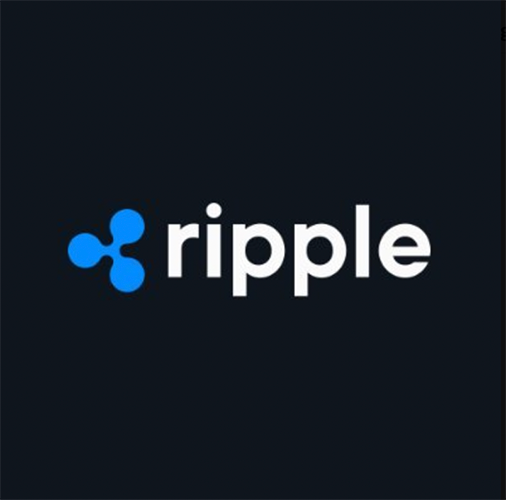CEO of Blockchain Public Relations Giant Wachsman Sees Major Industry Pivot Towards Enterprises
Blockchain Journal editor-in-chief David Berlind interviews David Wachsman, CEO and founder of Wachsman Public Relations, one of the largest (if not the largest) PR firms in the blockchain industry. The interview took place at the Consensus 2023 conference in Austin, Texas, where Wachsman PR has been a sponsoring exhibitor since 2015.
Wachsman revealed that his company currently represents 75 to 80 companies in the blockchain and Web3 space across three offices in the United States, three in Europe, and one in Asia. Given his years of experience and industry observation, Berlind was looking to Wachsman to see what blockchain trends and new companies were most interesting to him and to get some predictions for the year ahead.
Based on what he has seen over the last year, Wachsman believes the blockchain industry is making a pretty hard pivot toward enterprises; a segment of the market that, until recently, was pretty underserved. While there is still plenty of demand for cryptocurrencies from retail investors and consumers, Wachsman says the real killer use cases for blockchain involve scenarios that most people cannot naturally imagine until they take a moment to really understand the unique value proposition (UVP) of distributed ledger technology (DLT). For example, how blockchain can serve as the backbone for air traffic control systems that handle swarms of drones or for three-dimensional accounting systems that address the unique needs of a multi-party supply chain. However, Wachsman does admit that working with enterprise companies can be complicated. He notes that many blockchain companies are still struggling to successfully target enterprises with their offerings.
When Berlind asked Wachsman about the barriers to blockchain adoption, he cited regulatory uncertainty, cryptocurrency volatility, and the lack of understanding of the technology as some of the main blockers. However, he believes that the benefits of blockchain technology are enough to convince enterprises to overcome those barriers and get started on their blockchain projects. (The full-text transcript appears below.)
Published:May 3, 2023

10 min read
Audio-Only Podcast
David Berlind's Interview with David Wachsman, CEO and founder of Wachsman Public Relations
David Berlind: Today is April 27th, 2023. This is the Blockchain Journal podcast. I'm your host, David Berlind. I'm coming to you from Consensus 2023, which is taking place in Austin, Texas. We are literally in the middle of the exhibit space show floor, surrounded by tons of exhibitors, all sorts of attendees, [and] everybody interested in blockchain and cryptocurrency. Standing with me is David Wachsman. He is the CEO and founder of one of the largest, maybe the largest, public relations companies in the blockchain space. David, thanks for joining me on the show.
David Wachsman: Thanks, David. It's great to be here. Sorry, I'm not wearing cowboy boots.
Berlind: Well, there are a few people wearing cowboy boots around here, but yeah, I don't know if they look good on you as they do on some of the other people that are here. So the reason, I normally don't interview PR people, but you guys have like, I don't know, how many companies in the blockchain space do you represent?
Wachsman: Currently working about 75 to 80 in the Web3 space from ocean to ocean and coast to coast.
Berlind: Ocean [to] ocean. So you guys are based in Europe, you're based here in the US.
Wachsman: Yeah, we've got three offices in America, 3 in Europe, and 1 in Asia so far. But we plan to expand in 23 and beyond.
Berlind: So you are like the 800-pound gorilla and when it comes to blockchain PR, that's just phenomenal success. You're here at the show, 2023. You've been in the industry for how many years?
Wachsman: So, so far, we've been around since 2015, and we've actually been sponsors of Consensus for the last seven years, so I believe that makes us the third or fourth-longest standing sponsor of this conference and we've seen it change immeasurably.
Berlind: So you're a remover and a shaker, everybody knows you. You're like an original gangster, quite frankly. So when you're here this year, and you've been here all those other years, what do you think is standing out to you in terms of enterprises and blockchain? What's the most interesting things to you?
Wachsman: Well, first, I've seen a real shift towards enterprise. I think that we've seen kind of, there have been some certain moments in time of the course of kind of blockchain and DLT history where we've seen first people talking about private blockchains in the early days. This is post-Bitcoin. Then we saw kind of the rise of Ethereum and public blockchains. We saw the rise of DeFi, we saw the rise of NFTs, but we've seen the primary focus, and this is true of almost all major companies in the space, is they're now focusing on [a] longer sales cycle, [and] much more sophisticated enterprise deals, because what they're seeing is demand from enterprise on one side, and also a race for blockchain companies to prove that they have real value with real-world use cases that target tens of thousands or even millions of potential participants and enterprise is the best route to do so.
Berlind: Yeah. A lot of people talk about previous technology revolutions. We've seen them all. There were lands back in the 90s, then the internet came along, then the web, mobile, [and] cloud, and during each one of those technology revolutions, things didn't hockey stick until the enterprises were all in. And would you say the same is true for blockchain?
Wachsman: No, I think that there's a lot of retail and consumer demand for certain things like cryptocurrencies. However, what I think the real killer use case is going to be for things that most people just couldn't naturally conceive of until they take a moment to think about it. Things like air traffic control systems that can handle swarms of drones that are inevitably going to be in the air. And we've had a chance to work with a partially Boeing-owned company to do exactly that, to try and redesign air traffic control for the 21st century. We've seen supply chain companies that have come up can have real novel solutions where this kind of three-dimensional accounting that can only really exist through a blockchain protocol and the use of a ledger with this many types of variables into it.
That couldn't really exist without blockchain. And we're seeing kind of the rise [of] those types of companies too. It's a really exciting time. There's a lot of complications, Dave when it comes to working with enterprise, and I think that's one of the things that when I'm talking to clients here at the show, I'm seeing is that many of them are looking and just trying to figure out how best to go and target enterprises and to work closely with them with systems integrators to get the job done.
Berlind: And what's the answer to that question? How do you reach an enterprise? Because one of the biggest problems or multiple problems is that there are multiple blockers to blockchain adoption. There's so many barriers to that. There's regulatory uncertainty. There's this whole idea of cryptocurrency volatility. You have to hold any of the crypto on your books to just even gauge in — with the fees of chains. There's the lack of understanding. Typical technology revolutions before only required IT people, but this kind of requires your CFO and a degree in international finance.
Wachsman: I think that's the one. So, as it turns out, unless it's coming down from the CEO level and enterprises, what you're seeing is it needs to be this kind of hybrid approach to win budget. So you're going to need the CIO's approval, you're going to need to have the CFO's approval, you're going to need to have the CTO's approval, and then you probably need multiple other teams in the stack, including on the compliance side. So now we've got everyone from the COO down involved in trying to make sure this can be pulled off and that really complicates things.
At length is not only the sales cycle, but the time to pilot and then into implementation and production. Although it's longer, what we've seen in [the] early days is that for them of the pioneering companies, it's already paying dividends. And so I think that we're going to see more companies trying to figure out how to go and understand or how to tackle, I should say, the multi-pronged problem of dealing with all those different C-suite officers, getting them to work together to come up with some sort of report and then getting that to board approval as fast as possible.
Berlind: You're in the workflow for developing messages for all of these companies. How do you build messages that resonate with all of those different personas you just mentioned? Because a lot of them, essentially, the only thing you know about blockchain is what they're reading on the mainstream media headlines, and it's not flattering.
Wachsman: Well, it certainly hasn't been in the last year or so thanks to SBF, but let me say this. What we found is that an actual in-person workshop where you can go and be hands-on with some of the powers that be in these organizations is a great way to go and first educate people about some of the maybe misconceptions they might have, but also get everyone on the same page and it turns out much more rapidly than people might think, you're going to go and get people to say, "Okay, we agree this is a problem that we have. Blockchain does seem like the right type of solution." There are technology partners that today can fulfill this demand and there are the types of either consultants or integrators that can go and help us pull this off from the outside in record time.
Berlind: Who's here that really interests you, whether or not they're your client or not?
Wachsman: Well, I've got to say I'm a big fan of what Hyperledger's been doing. They are one of the real consortia out there that have pulled together some of the real experts from the public blockchain space, from major enterprise[s] and from some of the consultancies that have been pulling this off at enterprise levels for a long time. I think we've got to go and give Hyperledger a round of applause for kind of pulling off one success after the next, and they've got a lot of really good projects right now that I'm a believer in.
Berlind: Yeah. Daniela Barbosa is the executive director of the Hyperledger Foundation. We interviewed her in Davos, Switzerland at the World Economic Forum. But how is it that they are approaching enterprises? Like one of the biggest Hyperledger projects kind of, there was Maersk and Trade Lens that Daniela agreed was a governance problem. People trying to do permissioned blockchain, private blockchain. A lot of people built some of those early permission and private blockchains using Hyperledger. So what's their unique value proposition to the enterprise?
Wachsman: So Hyperledger isn't just [a] private blockchain. This is what's really interesting. It turns out there's a lot of public blockchains who are contributing to the multitude [of] projects that they have, which are enterprise solutions that might require different types of technology stacks. So some might require a public layer one protocol, but that might have some sort of either private UI on top of it or maybe some sort of consortium agreement on the governance side. You need to have [a] novel but specific solutions to each individual problem because it's not one size fits all.
Berlind: Who else? We got a ton of vendors and exhibitors here on the show floor. [Is] anybody else exciting you?
Wachsman: Gosh, I've got to say I'm excited by some of the work that Stellar’s doing when it comes to international remittances. I think that enterprise[s] can only benefit from having a more international set of customers, and I think they're doing great work on that. I've got to say, Ripple is doing incredible things right now when it comes to banking meets blockchain, which I think is really exciting, and Filecoin. I think it's very, very important and I think that enterprises see the value in this, in having storage that isn't going to be taken down and that's resilient all over the world. It's really exciting stuff, and I think it'd be part of many tech stacks for enterprises all over the world.
Berlind: Speaking to your point earlier about some companies sort of pivoting towards the enterprise because they realize that's key to their success. There are some changes that from the get-go have said, "We're all about the enterprise." What about those guys?
Wachsman: I think that for them, some of them, the ones weren't engineered correctly, they're having really long sales cycles and they've failed so far. I think it requires probably being endemic to enterprise, actually understanding the culture of it, the speed of it, which can be glacial. In order to succeed with enterprise sales and then implementation, some in crypto simply don't have the patience for it.
Berlind: What should enterprises be looking for when they're looking at a chain and this is the criteria, it's like, "Okay, great, I'm into blockchain, I see the use cases for it. What are some of the criteria?" Because you're doing all this messaging. What are the attributes and the benefits of some of these chains that they say, "Hey, look, get this message out there because this is what sets us apart from other chains."
Wachsman: Well, what we're seeing is that it needs to be future-proof. So first they need to meet certain specific criteria. From a regulatory compliance perspective, everyone wants to make sure that this chain is already compliant, and more importantly, they're going to exist for quite a long time. No one wants to spend tens of millions of dollars or more on building a pilot and then a production environment only to see everything crumble within a year or two because perhaps of either non-compliance or non-performance. So performance matters, but I would say the team behind a chain matters just as much as the chain itself.
Berlind: You've been coming here now for eight years. What's going to happen in the next year? What's your prediction?
Wachsman: I believe next year we're going to be at least 2x as big here at Consensus. They have plans to be back in Austin next year. I think we're going to go and see even more energy than we already see today, and I'm hoping we see a lot more enterprise names as sponsors on the floor.
Berlind: Okay. Well, David Wachsman, CEO and founder of Wachsman Public Relations, thank you very much for joining me on the Blockchain Journal podcast.
Wachsman: Thank you, David.













